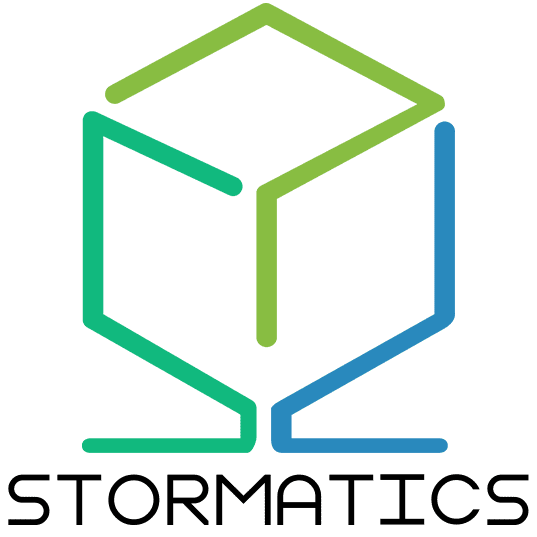Unraveling the Mystery: Why PostgreSQL Costs You Nothing
Each time I mention that PostgreSQL comes with zero licensing fees, I’m met with skeptical looks and a barrage of “Really? But how much does the license actually cost?”. It has happened enough times that I decided to write a blog explaining this, keeping in mind especially people who are considering PostgreSQL, coming from an Oracle background.
Section 1: Understanding Open Source Licensing
Open source software isn’t just about accessing software for free; it’s a whole way of thinking about collaboration and innovation in the tech world. It’s about building a community where everyone can contribute, improve, and share software freely.

Demystifying Open Source Licenses
Open source licenses serve as the rulebook of the open source world, offering a unique blend of freedom and responsibility. These licenses come in various forms, each with its own set of rules and degrees of restriction, but all share a common goal: to make software freely accessible and modifiable by anyone.
The Essence of Open Source Licensing
- Freedom to Use: These licenses grant you the freedom to run the software for any purpose. This unrestricted usage is fundamental to the open source ethos.
- Freedom to Modify: Not only can you use the software, but you’re also free to modify it. This means you can adapt the software to meet your specific needs or experiment with new features.
- Freedom to Distribute: You can redistribute the original or your modified versions of the software. This aspect is crucial for fostering a collaborative environment where improvements and innovations can be shared with the entire community.
The Degrees of Restriction
- Permissive Licenses: Some open source licenses are quite permissive, like the MIT or Apache licenses. They have minimal restrictions, allowing you to do almost anything with the software, including using it in proprietary projects.
- Copyleft Licenses: On the other side are copyleft licenses, like the GNU General Public License (GPL). These require that any modified version of the software, or any software that incorporates parts of it, must also be distributed under the same license terms.
Balancing Freedom with Responsibility
- Ensuring Open Continuity: While granting freedoms, these licenses also impose certain responsibilities. The aim is to ensure that the software and its derivatives remain open and free for the community’s benefit.
- Community Contributions: Open source licenses encourage users not just to take from the community but also to give back. Whether it’s through sharing modifications or helping to improve the software, this reciprocal relationship is a cornerstone of open source culture.
Why This Matters
- Promoting Innovation: By allowing users to modify and redistribute software, open source licenses foster an environment ripe for innovation. Diverse ideas and approaches can be freely explored, leading to rapid advancements and unique solutions.
- Building a Community Asset: These licenses ensure that software isn’t just a product of a single person or company but a community asset. It’s a collective resource that benefits from the contributions and wisdom of its user base.
PostgreSQL: A Prime Example of Open Source
PostgreSQL, renowned for its liberal licensing, exemplifies the best of what open source can accomplish. The PostgreSQL License, similar in permissiveness to the MIT License, is one of the most liberal in the open source community. With a grand total of 163 words, the license is easy to read and understand by anyone. This aspect of PostgreSQL has profound implications on how it is developed, used, and maintained.
The Liberality of PostgreSQL’s License
- Minimal Restrictions: PostgreSQL’s license places minimal restrictions on how the software can be used, modified, or distributed. This freedom has encouraged widespread adoption and integration into both open source and proprietary projects.
- Promoting Wider Usage: The liberality of the license means that businesses, from startups to large enterprises, can use PostgreSQL without worrying about compliance with stringent licensing terms or incurring high costs.
Community-Driven Development
- Global Contributions: Unlike proprietary databases that are typically developed by a single corporate entity, PostgreSQL benefits from contributions from a global community. This includes not just code, but also bug reports, feature suggestions, and extensive documentation.
- Diverse Perspectives: The community encompasses a wide range of users, from independent developers to large companies, bringing diverse perspectives that drive innovative solutions and robust features.
Innovation through Collaboration
- Rapid Evolution: The collaborative approach under the open source model enables PostgreSQL to evolve rapidly, adapting to new technologies and user needs more swiftly than many proprietary databases.
- Quality and Reliability: Contributions undergo rigorous review, ensuring that new features and fixes meet high standards of quality and reliability.
Cost-Effectiveness
- Free from Licensing Fees: The absence of licensing fees is a major financial advantage for organizations. It allows for cost savings that can be redirected towards other areas such as development, support, or infrastructure.
- Lower Total Cost of Ownership (TCO): Beyond the lack of licensing fees, the use of PostgreSQL can lead to a lower total cost of ownership compared to proprietary alternatives, considering factors like implementation, maintenance, and scalability.
Why This Matters
- Empowering Businesses and Developers: The liberal licensing of PostgreSQL empowers businesses and developers with more control over their technology stack, enabling them to make decisions based on technical merit rather than licensing constraints.
- Fostering a Healthy Ecosystem: This open, community-driven approach contributes to a healthy ecosystem around PostgreSQL, ensuring its longevity and relevance in the rapidly evolving landscape of database technology.
Section 2: The Zero-Cost License of PostgreSQL
No, it’s not a trick, and there’s no catch – PostgreSQL is actually free. Let’s break down why PostgreSQL doesn’t cost a penny in licensing fees and how this changes the game for IT budgeting.
PostgreSQL’s Generous Licensing Model
PostgreSQL operates under the PostgreSQL License, a liberal open source license. This means you get to use, modify, and distribute PostgreSQL freely. The beauty of this model lies in its simplicity and the freedom it offers – it’s about empowering users rather than restricting them with fees and stringent conditions.
Why No Fees? The Community-Driven Philosophy
The secret sauce behind PostgreSQL’s no-cost license is its community-driven development model. A global community of developers, from independent enthusiasts to professionals, contributes to its continuous improvement. This collective effort not only accelerates innovation but also distributes the cost of development. Instead of one company bearing all the expenses and passing them onto users, PostgreSQL thrives on collective contribution and shared expertise.
Section 3: Comparing PostgreSQL and Oracle Licensing
Now, let’s put PostgreSQL side by side with Oracle, a giant in the proprietary database world. This comparison will shed light on how different their approaches are, especially in terms of licensing and the impact on your budget.
Oracle’s Licensing: A Cost Overview
Oracle operates on a proprietary licensing model. This means users pay not just for the software, but also for ongoing maintenance and support. The cost doesn’t end at the initial purchase; it includes annual fees, which can be substantial, especially for larger organizations. Plus, there are often additional costs for extra features, scalability options, and advanced support.
PostgreSQL vs. Oracle: The Cost Contrast
When you look at PostgreSQL, the contrast is stark. No licensing fees, no annual maintenance charges, and no premium for additional features. The only costs you might encounter with PostgreSQL are related to optional professional support services or additional hardware requirements, which are often much lower than Oracle’s ongoing fees.
This clear-cut difference in the licensing model not only highlights PostgreSQL’s cost-effectiveness but also reflects a broader philosophy in software development and distribution.
Section 4: Total Cost of Ownership (TCO) Analysis
Understanding the Total Cost of Ownership (TCO) is crucial for IT budgeting. It’s not just about the initial costs; it’s the long-term financial implications that really matter. Let’s dive into how PostgreSQL and Oracle compare in this regard.
Beyond Licensing: The Broader Cost Perspective
With PostgreSQL, the absence of licensing fees is just the start. You’re also looking at generally lower costs for implementation and maintenance. Since PostgreSQL is open-source, you can leverage community support and a plethora of free resources, which reduces costs further. However, if you opt for professional support or custom development, those would be your primary expenses.
Oracle, on the other hand, involves higher initial and ongoing expenses. Licensing fees are just the tip of the iceberg. You need to consider annual support fees, costs for additional features, and potential scalability expenses. These costs can escalate quickly, especially for large-scale deployments.
Long-Term Financial Implications
In the long run, PostgreSQL can lead to significant savings. The cost-effectiveness becomes even more pronounced when you scale your operations. With Oracle, as your usage grows, so do your expenses, often in a linear fashion. PostgreSQL, with its flexible nature and lack of additional costs for scaling, can offer more predictable and manageable expenses over time.
Cost Comparison
PostgreSQL, as an open-source database, has no licensing costs, making it a favorable alternative to Oracle. The breakdown of costs for Oracle can be quite significant:
- For Oracle Enterprise Edition, the licensing costs are $47,500 per CPU core, which needs to be multiplied by the number of cores on the server.
- Additional costs for clustering/replication and advanced security are $23,000 and $15,000 respectively, with an annual software update license and support fee of $10,450.
- In contrast, PostgreSQL offers these features at no cost.
Functionality and Ease of Use
PostgreSQL is on par with nearly all aspects of Oracle Database but without the associated costs. PostgreSQL’s community offers a wide range of tools and extensions for various needs, which reduces the development time for custom tooling. Oracle, on the other hand, requires more complex ongoing administration and offers many of its tools as additional paid solutions.
Real-World Enterprise Examples
Some notable enterprises that have migrated from Oracle to PostgreSQL include the Federal Aviation Authority (FAA), Goldman Sachs, and Salesforce. These migrations are often part of a strategy to escape high service costs and vendor lock-in associated with Oracle [Source].
Scalability and Support
PostgreSQL databases are developed to accommodate any volume of data and offer free scalability. Oracle can be more expensive for scalability as workloads increase. PostgreSQL also offers customer support for free through its developer community, with the option of paid professional support at a lower cost than Oracle.
These examples and comparisons highlight the significant cost benefits and comparable functionalities of PostgreSQL over Oracle, making it an attractive option for organizations looking to optimize their IT budgets.
Section 5: Benefits Beyond Cost in PostgreSQL
While cost is a crucial factor in choosing a database management system, it’s far from the only consideration. PostgreSQL shines in several areas, offering a suite of benefits that underscore its value in the database technology landscape.
Flexibility and Customization
Open-Source Advantage
Being open-source, PostgreSQL is inherently flexible and customizable. This allows organizations to adapt the database to their unique requirements, a level of flexibility seldom found in proprietary systems.
Extensive Range of Extensions
The PostgreSQL ecosystem is rich with extensions and plugins. This means you can enhance its functionality, add new features, or even modify its behavior to suit specific needs, all without altering the core database.
Compatibility with Other Databases
PostgreSQL’s compatibility and available tooling with other relational databases, particularly Oracle, is a standout feature. It simplifies migration and integration processes, making it a go-to choice for organizations transitioning from other systems.
Scalability and Performance
Handling Growth with Ease
PostgreSQL is renowned for its scalability. Whether you’re a small startup or a large enterprise, it scales effortlessly to accommodate growing data loads, all without imposing additional financial burdens.
Performance Efficiency
Regular updates and active development ensure PostgreSQL is not just maintaining but constantly improving its performance. This means better handling of diverse workloads and efficient database management.
Community Support and Innovation
Global Development Community
The PostgreSQL community is a diverse and active group spanning across the globe. This community drives the software forward, ensuring it stays current with the latest technological advancements.
Support and Knowledge Sharing
With an active community, you have access to a vast pool of knowledge. From troubleshooting complex issues to sharing best practices, the community is a valuable resource for users at all levels.
Robust Security Features
Comprehensive Security Measures
Security in PostgreSQL is robust and multifaceted. It offers various authentication options and role-based access control, ensuring that data integrity and security are never compromised.
No Additional Cost for Enhanced Security
Unlike some proprietary databases that charge extra for advanced security features, PostgreSQL provides powerful security enhancements like the pgcrypto plugin at no additional cost.
Conclusion
In the world of database management, PostgreSQL stands out as a compelling option. Its zero-cost licensing is just the tip of the iceberg. The real value lies in its flexibility, scalability, community support, and robust security features – all of which come without the hefty price tag of proprietary systems like Oracle. For decision-makers in IT and infrastructure planning, PostgreSQL offers an opportunity to not only optimize costs but also to invest in a technology that is continuously evolving and improving thanks to its open-source nature.
Frequently Asked Questions (FAQs)
Q. Does PostgreSQL have hidden licensing fees for enterprise features?
PostgreSQL operates under a permissive open source license that is completely free from licensing fees for all use cases. You will never encounter hidden costs for core features, enterprise capabilities, or scalability modules regardless of your deployment size or complexity.
Q.How does PostgreSQL TCO compare to Oracle Enterprise Edition?
The Total Cost of Ownership is significantly lower because you avoid Oracle’s heavy expenses like the $47,500 per processor core licensing and annual support fees. You only pay for your infrastructure and any optional professional services you choose to engage for your specific environment.
Q. Do I need to pay for PostgreSQL clustering or high availability add-ons?
All high availability, partitioning, and replication features are included in the core PostgreSQL distribution at no additional cost. You can deploy robust clustering architectures without purchasing expensive line items like Oracle Real Application Clusters or Active Data Guard.
Q. What are the legal risks of using PostgreSQL in proprietary applications?
The PostgreSQL License is extremely permissive and similar to the MIT License, granting you the freedom to modify and distribute the software without strict copyleft obligations. This ensures your legal team can approve its use in proprietary products without fear of intellectual property exposure.
Q. Is professional support mandatory for running PostgreSQL in production?
Support is completely decoupled from the software license, giving you the flexibility to rely on the extensive free community resources or purchase professional support from third-party vendors. This model prevents vendor lock-in and allows you to control your operational expenses based on your actual service level requirements.






Comments (4)
Paul Sammy
Not sure its a fair comparison, though nothing can compare to free s/w but most companies of any size will have a sizable discount from the Oracle List price. Also the shift right to managed services and utility based pricing will be paying in some cases the license fee based on uptime, product, features and usage. I would be interested to know what are typical postgresql support charges as no-one would want to run a critical DB with community support and how that fee compares to the Oracle support charges.
Umair Shahid
Thank you for your comment, Paul.
I understand that Oracle tends to give big discounts to their customers, but even reducing the price by 50% doesn’t bring the licensing anywhere close to free 🙂
I think your point about managed services is spot on. In case of managed services, however, the pricing is for the services (or automation) provided – licensing cost comparison remain the same.
You will note that I have included indicative support costs for PostgreSQL in the comparison chart per socket. PostgreSQL: $5,000 | Oracle Standard Edition: $3,850 | Oracle Enterprise Edition: $10,450. In case of Oracle, these costs are added to the licensing fee. In case of PostgreSQL, the only cost is for Support with zero licensing fee.
Markus
You included indicative support costs per socket. When we were looking for professional PostgreSQL support a few years ago, we found companies that charged up to $5k per PG instance(!) per year. If you have a large number of PG instances, such a per instance per year approach can easily result in much higher PostgreSQL support costs than for Oracle.
Umair Shahid
Thank you for sharing your experience, Markus. When I was working at 2ndQuadrant, our unit of measurement for Support was indeed PG instance – which was defined as a unique combination of IP and port being used by a PostgreSQL process. Compared to Oracle’s per core pricing, almost always, this turned out to be a more cost effective way of pricing for the customer. They would be charged the same amount for their production database whether it was running on 1 socket and 8 cores or 4 sockets and 32 cores. A large number of PG instances would also typically translate into a large number of cores being utilized – which in turn would make Oracle’s comparison pricing even higher.
I do understand that there could be cases where this impact wasn’t achieved. Perhaps this is one reason that pretty much all PostgreSQL support providers have now moved to a per core pricing and the instance-based pricing stands obsolete.
If you are still evaluating, I’d love to discuss and see if I could be any help in your decision-making process.